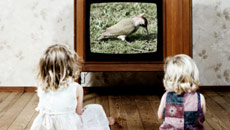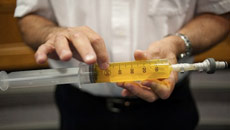Plants give us life, but how do they have sex has long been a mystery. Now, biologists from the University of Leicester have undressed the genetic hierarchy in plant sperm cell formation.
The researchers have discovered a pair of proteins made by flowering plants that are vital for the production of the sperm present within each pollen grain.
"We often take for granted sexual reproduction in plants and its role in our lives. It is a complex process and it is only recently that we are beginning to get a grip on the underlying mechanisms," explained David Twell, professor at University of Leicester's department of biology.
Flowering plants require not one but two sperm cells for successful fertilisation - one to join with the egg cell to produce the embryo and the other to join with a second cell to produce the nutrient-rich endosperm inside the seed.
The mystery of this "double fertilization" process is how each single pollen grain is able to produce twin sperm cells.
Researchers have found a pair of genes called DAZ1 and DAZ2 that are essential for making twin sperm cells.
Plants with mutated versions of DAZ1 and DAZ2 produce pollen grains with a single sperm that is unable to fertilise.
DAZ1 and DAZ2 are controlled by the protein DUO1 that acts as a "master switch".
"DUO1 and the DAZ1/DAZ2 genes work in tandem to control a gene network that ensures a pair of fertile sperm is made inside each pollen grain," Twell noted.
Interestingly, DAZ1 and DAZ2 perform their role by cooperating with a "repressor" protein called TOPLESS.
TOPLESS acts as a brake on unwanted gene activity that would otherwise halt sperm and seed production.
"We hope to further demystify the fascinating process - of how plants make the fertile sperm inside the pollen grains - that are essential for the vast majority of our food crop production," researchers emphasised.
Such information may become increasingly important as we strive to breed superior crops that maintain yield in a changing climate, scientists concluded in a study published in the journal Plant Cell.





